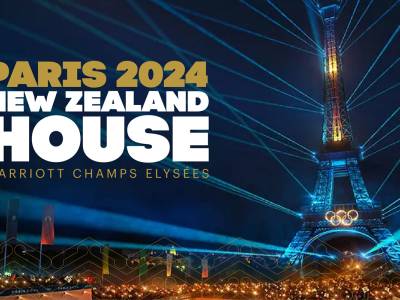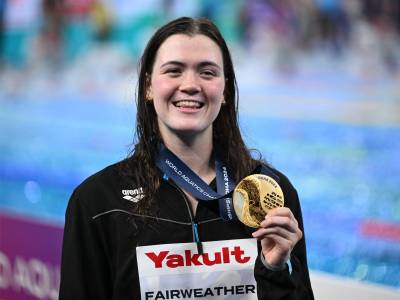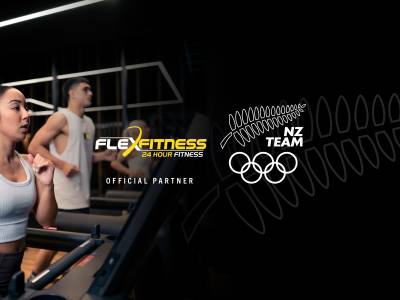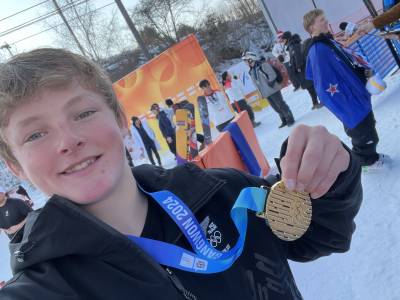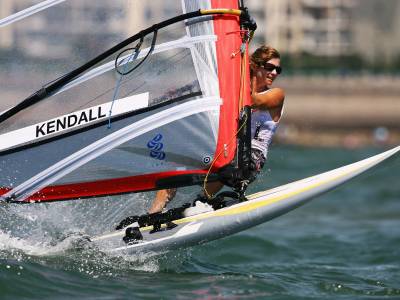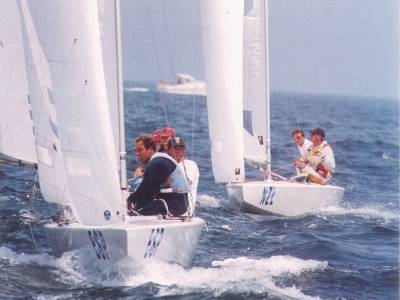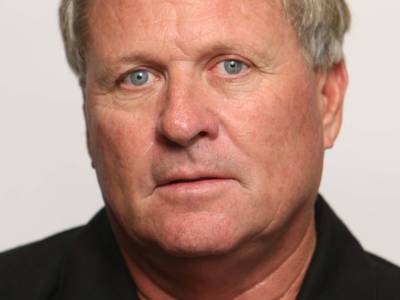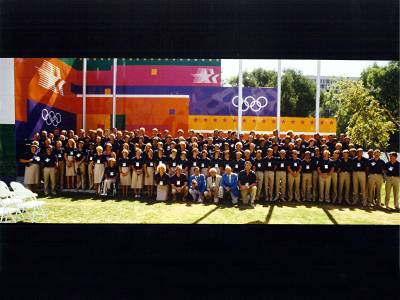It's doubtful if any New Zealand sportsman has run the gamut of public
emotion like cherubic-faced sailor Russell Coutts.
He was saluted when he won an Olympic gold medal in 1984 and became a national
hero when he skippered Black Magic to that historic America's Cup victory in
1995. But within a few years he was publicly branded a traitor and even
received death threats.
When the dust finally settles on Coutts' career, he will be acknowledged
as one of New Zealand's greatest yachtsman. But, fairly or not, there will be a
caveat beside his name because of the unhappy circumstances in which he
switched from Team New Zealand to the Swiss team Alinghi in 2000.
Coutts then led Alinghi to an America's Cup triumph in 2003, smashing
Team New Zealand 5-0 in the final. He proved his point on the water, but in the
process he inflamed already wounded feelings.
He offered the full package as a sailor. He grew up in Wellington and
then Dunedin, but completed his Bachelor of Engineering degree at Auckland
University in 1986. Thereafter, whatever yachting project he was involved in,
he was able to offer as much in technical expertise as in tactical knowledge.
Coutts always appealed as a potentially great sailor, as a youth single-handed
world title in 1981 indicated.
But he really came to the public's attention in 1984 when he won the
finn class gold medal at the Los Angeles Olympics. He was brilliant throughout
the competition, recording finishes of 1-7-2-2-21-3-5. Before the final race he
developed painful boils on his backside and had to compete in agony, even
wearing nappies to try to lessen his discomfort.
But he couldn't afford to miss a step – the competition was extremely
tight. Going into the final race almost nothing separated the New Zealander
from American John Bertrand and Canadian Terry Neilson. Coutts' fifth in the
final race, just ahead of Neilson, earned him enough points to claim the gold
medal.
There was more drama on the final day when his gear, weighed after the race,
was found to be too heavy. It required a long, nervous weight while it dried –
and consequently got lighter – before he was declared the gold medallist.
Coutts therefore became the first New Zealand yachtie to win a single-handed
class as the Olympic Games.
He went on to compile a phenomenal record on the world match-racing
circuit, winning world titles in 1992, 1993 and 1996. He had successful forays
into such events as the Admiral's Cup and One Ton Cup and earned world titles
in the 12m and Farr 40 classes.
He even attended a second Olympics, at Barcelona in 1992, when he, Simon
Daubney and Graham Fleury contested the soling event. Their finishes of
11-9-12-2-12-6 placed them eighth.
Little wonder Peter Blake asked him to skipper NZL 32, dubbed Black
Magic, in the 1995 America's Cup challenge. Blake and Coutts formed a
formidable team. Blake did the organising and Coutts concentrated on making the
boat go fast.
Black Magic swept to the Louis Vuitton Cup, then pounded Dennis Conner's
Young America 5-0 in the final. Coutts was the toast of New Zealand. There were
joyous scenes when the America's Cup victors were accorded huge parades through
New Zealand's main cities.
Coutts was awarded a CBE, was named World Sailor of the Year and won the
Halberg Award with Team New Zealand.
Coutts proved just as ruthless defending the cup as he had been in
winning it. In 2000 Coutts and his tactician, Brad Butterworth, were an
unbeatable combination and Team New Zealand outclassed Prada 5-0 to retain the
cup. Coutts was made a Distinguished Companion of the New Zealand Order of
Merit, and later accepted a knighthood.
Months after the victory, Coutts split from Team New Zealand, and Butterworth
went with him. They were lured to the Alinghi campaign by a huge pay offer and
disenchantment with how things were going inside the Team New Zealand camp.
That he subsequently returned to Auckland in Alinghi colours and won again
merely confirmed that behind the smile was a ruthlessly competitive sailor.
Coutts was awarded his second World Sailor of the Year crown in 2003. Ironically, he later fell out with Alinghi boss Ernesto Bertarelli and was
fired. Under the curious rules of America's Cup racing, this meant Coutts, the
greatest sailor in the competition's history – he had won 14 finals races – had
to sit out the 2007 event. He then signed for the American syndicate Oracle, as
chief executive and skipper of BMW Oracle Racing.
In 2010 Coutts' yacht USA beat the defending yacht Alinghi 5 by considerable
margins in both America's Cup final races.
By 2013 Coutts was chief executive officer for the Oracle team and oversaw an
amazing comeback in the America's Cup final. Team New Zealand led Oracle 8-1 in
the waters off San Francisco, but Oracle stormed back to retain the cup with a
9-8 victory.
Tweet Share
Russell's Games History
-
Olympic Summer Games Barcelona 1992
-
Olympic Summer Games Los Angeles 1984
- 1

